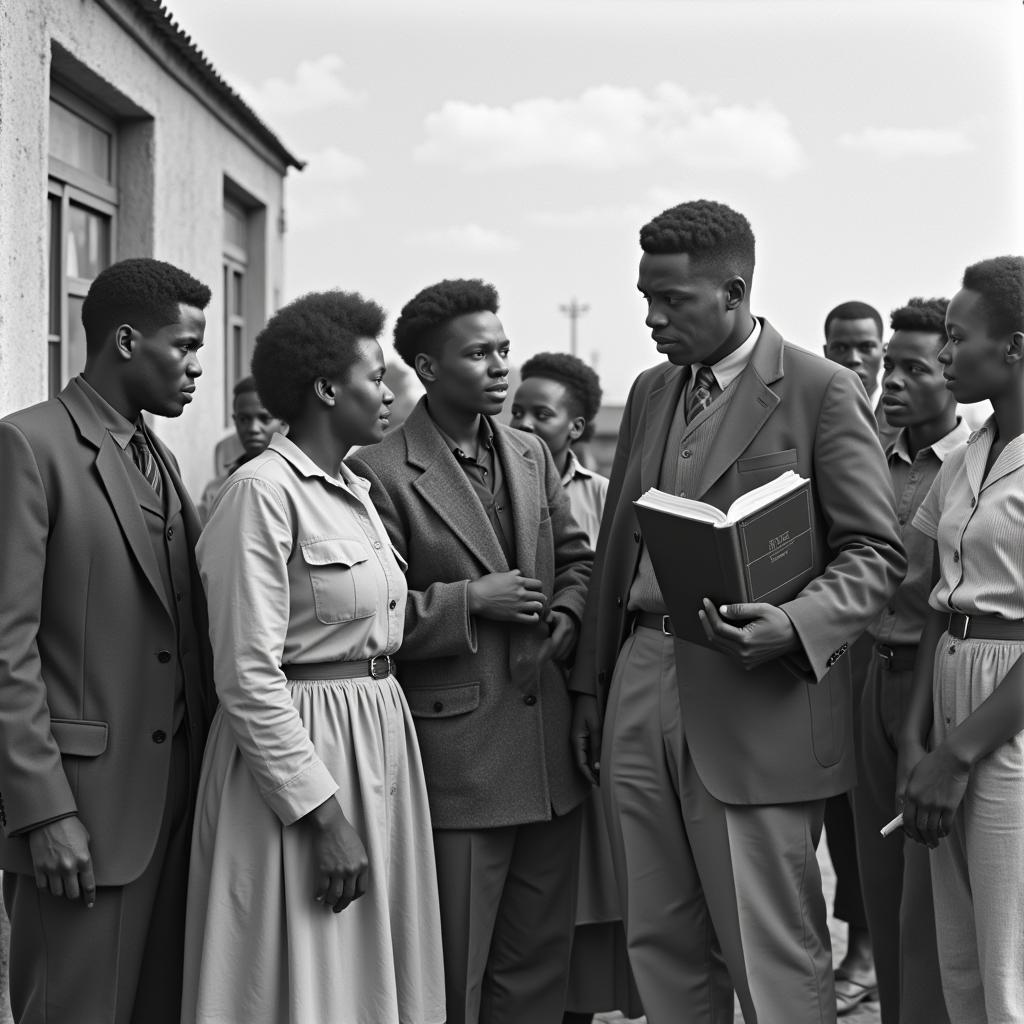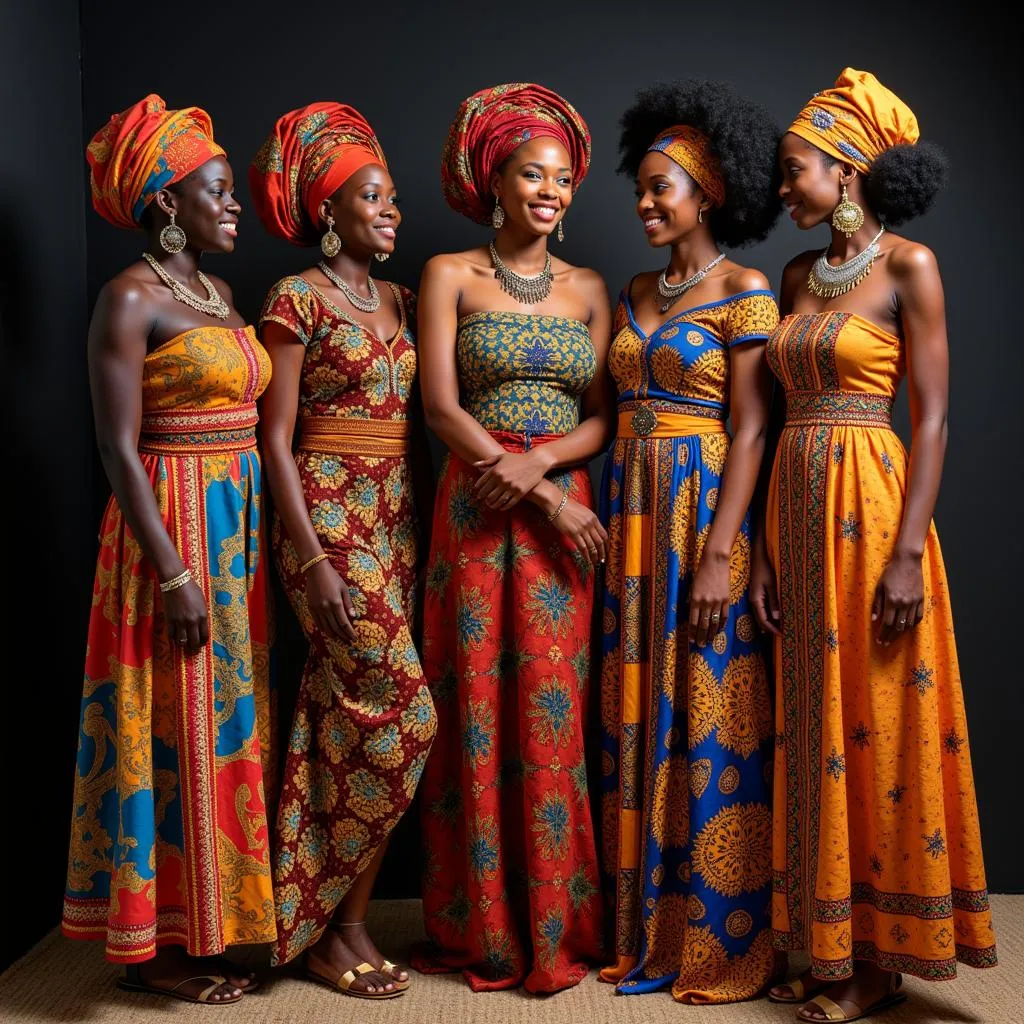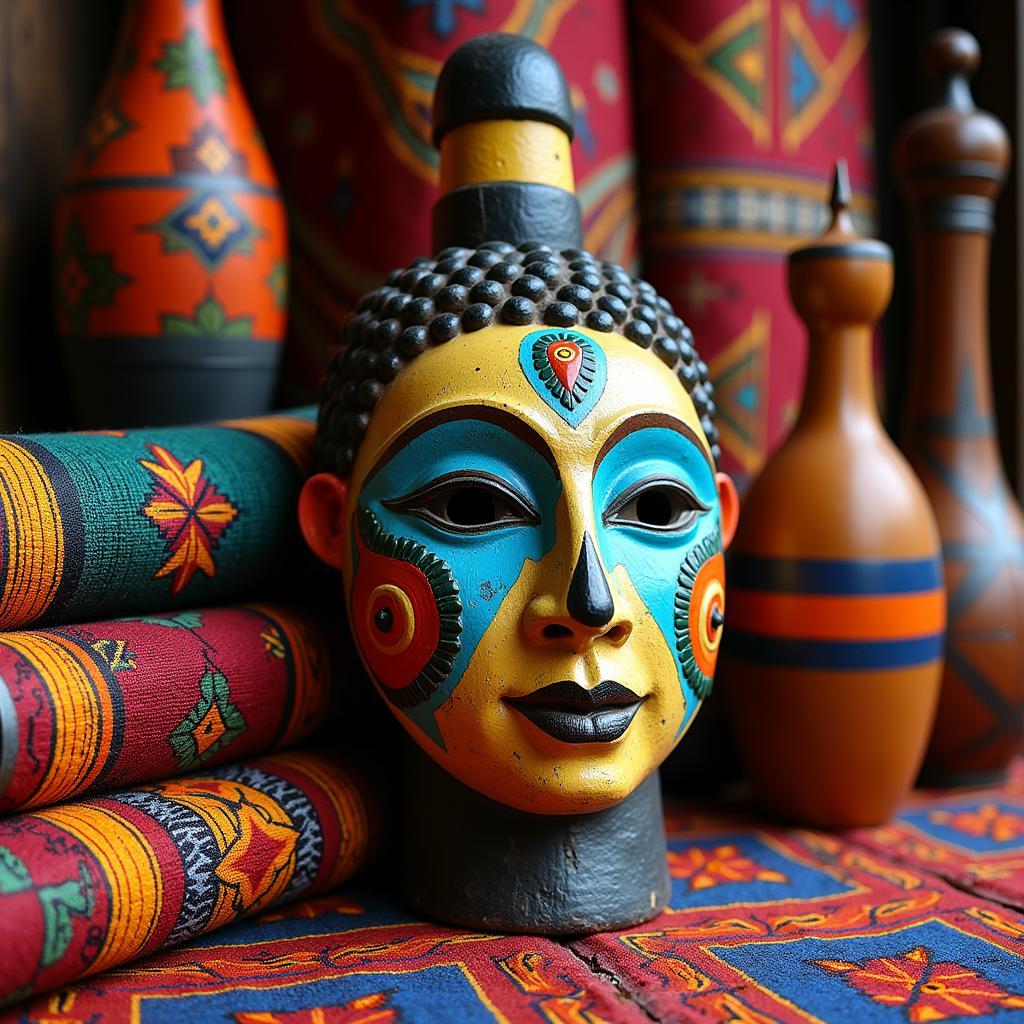African Americans in South Africa: A Complex Relationship
African Americans In South Africa represent a small but fascinating demographic with a unique history intertwined with both the American Civil Rights movement and the struggle against apartheid. Their presence, though limited, raises questions about identity, diaspora, and the global connections forged by shared experiences of racial injustice.
A Historical Overview of African Americans in South Africa
While the majority of Black South Africans descend from indigenous African tribes, a small number trace their roots back to the United States. These individuals and families arrived in South Africa at various points in history, driven by diverse motivations, including missionary work, educational opportunities, and the pursuit of a life free from the pervasive racism of the Jim Crow South. However, their experiences in South Africa were often far from the racial utopia they had hoped for.
African Americans who arrived in the late 19th and early 20th centuries encountered a society already stratified along racial lines. While they weren’t subject to the same legal restrictions as Black South Africans under the burgeoning apartheid system, they still faced discrimination and prejudice. Their American identity, coupled with their racial classification, placed them in a liminal space, neither fully accepted by white South Africans nor entirely integrated within the Black South African community. African americans in the new south provides further context on the challenges faced by African Americans in the US during this period.
Navigating Identity and Belonging
The experience of African Americans in South Africa highlights the complexities of racial identity in a global context. They found themselves grappling with questions of belonging and navigating a social landscape where race was a defining factor. Many contributed to the anti-apartheid movement, recognizing the parallels between their own struggles for civil rights in the US and the fight for racial equality in South Africa.
What Drew African Americans to South Africa?
Why would African Americans, facing discrimination in their own country, choose to relocate to South Africa, a nation grappling with its own deeply ingrained racial prejudices? The answers are multifaceted and varied. Some were drawn by the promise of missionary work, believing they could make a difference in the lives of Black South Africans. Others sought educational opportunities unavailable to them in the segregated US. Still others, disillusioned by the persistent racism at home, hoped to find a more equitable society in Africa, the ancestral homeland of many.
 African American Missionaries in South Africa Many found that the reality of life in South Africa was far different from their expectations.
African American Missionaries in South Africa Many found that the reality of life in South Africa was far different from their expectations.
The Role of African Americans in the Anti-Apartheid Movement
Despite facing their own challenges, African Americans played a significant role in the struggle against apartheid. They brought with them the experience and lessons learned from the American Civil Rights movement, sharing strategies and tactics with South African activists. This transatlantic exchange of ideas and activism contributed to the eventual dismantling of the apartheid regime. You can explore further information on the historical context surrounding the struggle for civil rights in african american history 1880s.
African Americans in Post-Apartheid South Africa
Following the end of apartheid in 1994, South Africa embarked on a journey of reconciliation and nation-building. African Americans continued to contribute to this process, working in various fields, including education, business, and community development. While the legacy of racial inequality persists, the post-apartheid era has offered new opportunities for integration and cross-cultural exchange. african american holidays 2017 highlights the continued importance of cultural awareness and celebration.
The evolving narrative of African Americans in South Africa offers a compelling lens through which to examine issues of race, identity, and diaspora in a globalized world.
Conclusion
The story of African Americans in South Africa is a complex and nuanced one. It’s a story of migration, adaptation, and resilience, of individuals and families navigating the intricacies of race and identity in a foreign land. Their presence, though small, enriches the tapestry of South African society and serves as a reminder of the interconnectedness of the African diaspora. Further exploration of African history can be found at african history 16th century. Learning more about the experiences of African Americans in South Africa offers valuable insights into the global impact of racial injustice and the ongoing pursuit of equality.
FAQ
- What is the estimated population of African Americans in South Africa?
- What are the primary reasons for African Americans migrating to South Africa?
- How did apartheid affect African Americans living in South Africa?
- What contributions have African Americans made to South African society?
- What are some of the challenges faced by African Americans in South Africa today?
- Are there any organizations that support African Americans in South Africa?
- What resources are available for African Americans interested in learning more about their history in South Africa?
Common Scenarios and Questions
-
Scenario: An African American considering moving to South Africa. Question: What are the visa requirements and job opportunities for African Americans in South Africa?
-
Scenario: A researcher studying the African diaspora. Question: What are the primary sources for researching the history of African Americans in South Africa?
Further Reading and Resources
For readers interested in exploring related topics, we suggest looking into:
- The role of African Americans in the Pan-African movement
- The impact of globalization on African diaspora communities
- Contemporary literature by African American authors in South Africa
- african american writers short stories
For support, please contact us at Phone: +255768904061, Email: kaka.mag@gmail.com or visit our office at Mbarali DC Mawindi, Kangaga, Tanzania. We have a 24/7 customer service team.



